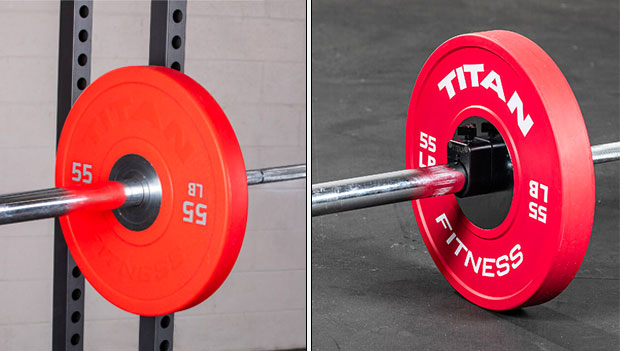
Up until recently, I worked out at home. I have a space in my shed, right next to the lawnmower and weed eater, where I've got a small set-up consisting of a small weight rack, a handful of dumbbells, a few kettlebells, and a weighted vest. Because it is not insulated, I've had to be careful with the type of equipment I buy, making sure I'm doing my research so the equipment isn't ruined by the elements. I've had some success and some failure with that part.
One of the biggest questions I've faced building my home gym is urethane versus rubber weights. For a long time, my go-to was rubber because it was cheaper and because it just made sense to me that rubber is durable. Both of those things are true, but that's not the whole picture; if someone had told me beforehand, I would have saved some time and money.
In that spirit, let's talk about what makes urethane and rubber different, and which is best for you.
Why Trust Us?
ACTIVE.com’s editorial team relies on the knowledge and experience of fitness and wellness experts including competitive athletes, coaches, physical therapists, nutritionists, and certified trainers. This helps us ensure the products we feature are of the highest standard. Collectively, the team has spent countless hours researching equipment, gear, and recovery tools in order to create the most accurate, authentic content for our readers. Customer satisfaction is also a key part of our review process, which is why we only feature products that are highly rated.
By clicking on the product links in this article, we may receive a commission fee at no cost to you, the reader. Sponsorships and affiliate commissions help support our research so we can help you find the best products. Read the full affiliate disclosure here.
Urethane vs. Rubber Weights: What's the Difference?
The big difference between urethane and rubber weights is that urethane is harder while rubber is softer. Where this affects you is durability. Urethane is much more durable in the sense that they are resistant to scratches and other wear, plus you can engrave or customize them with relative ease. On the other hand, rubber bumper plates are more resistant to impact if your workouts have dynamic lifts like CrossFit, or if you drop the weight.
Urethane vs. Rubber Weights: Which Is Right for You?
Things to Consider
- Cost. Cost is obviously one of the biggest factors for most of us. Urethane is a type of rubber that is chemically engineered for durability, so it is typically a good bit more expensive than rubber weights. But you also need to consider how you work out and what environment you'll keep the plates in because if you have to replace rubber weights you'll wind up spending more money.
- Your workout. The functional differences between rubber and urethane is another thing to consider. If you lift really heavy, drop weights, or otherwise have a lot of impact, then rubber bumper plates are a no-brainer. Urethane weight plates are durable, but they don't do well with repeated impact.
- Environment. Urethane will last longer in the elements than rubber. I'm not necessarily talking about leaving the weights outside, but if you work out in your garage or a shed that is less insulated than your house, urethane is a good buy.
My Opinion
Personally, I prefer urethane to rubber for two reasons. Number one is that my workout space at home is not insulated so I need durability. Number two is I don't usually do a lot of high-impact training. Urethane works best for me, but I have nothing against rubber weights.
My Recommendations
Below you can see examples of what I'm talking about. Rogue, REP, and Titan are three of the top fitness equipment brands out there and I wanted you to be able to compare the urethane versus rubber weights for yourself.
Rogue
- Rogue Urethane Dumbbells
- Rogue Urethane Weight Plates
- Rogue Rubber Weight Plates
- Rogue Rubber Dumbbells
REP Fitness
- REP Fitness Bumper Plate Sets
- REP Fitness Rubber Dumbbells
- REP Fitness Urethane Dumbbells
- REP Fitness Urethane Equalizer Set
Titan Fitness
- Titan Fitness Urethane Dumbbells
- Titan Fitness Urethane Olympic Weight Plates
- Titan Fitness Rubber Weight Plates
- Titan Fitness Rubber Dumbbells
FAQs About Urethane vs. Rubber Weights
Are rubber-coated weights better than urethane?
Rubber-coated weights absorb impact better than urethane, so if you do high-impact training then rubber is better.
Are urethane weights good?
Urethane weight sets are very durable and resistant to wear. They don't handle impact well, but they're some of the most durable weights overall.
Can I deadlift with rubber-coated plates?
Yes, you can definitely deadlift with rubber plates. One thing to keep in mind when you're using rubber plates is that they absorb impact, so if you're hitting the ground hard you might be using momentum to pull the weight rather than strength.


